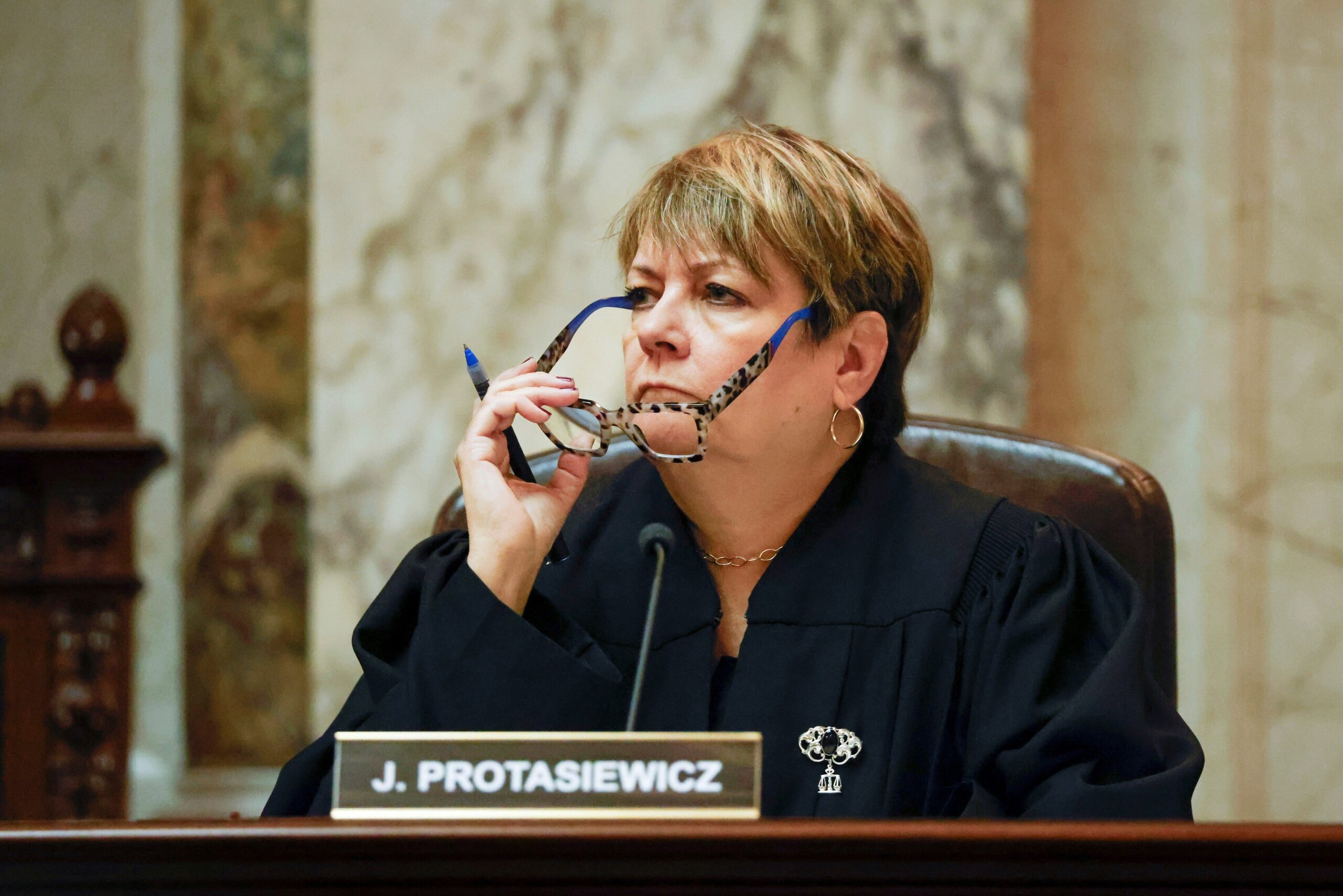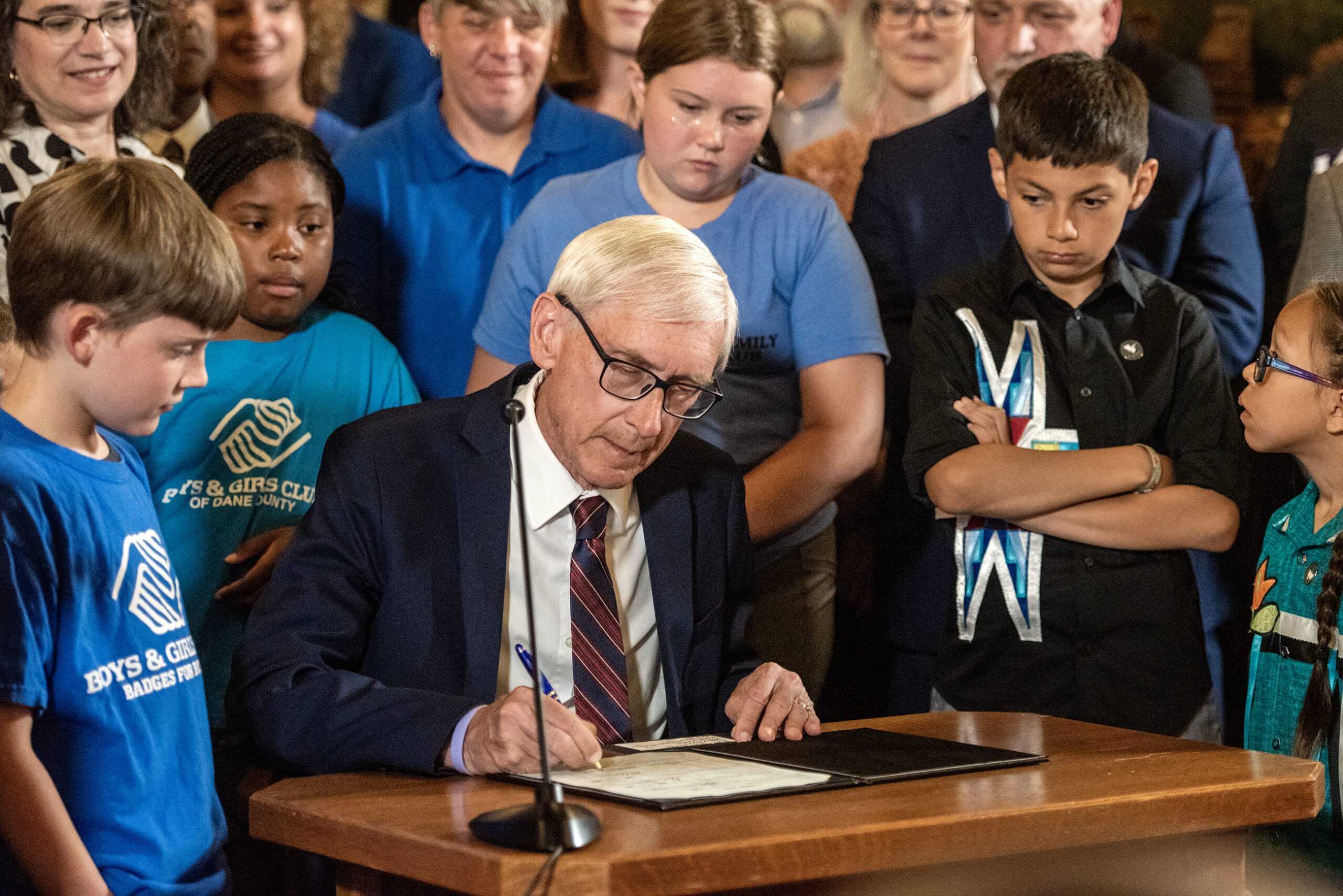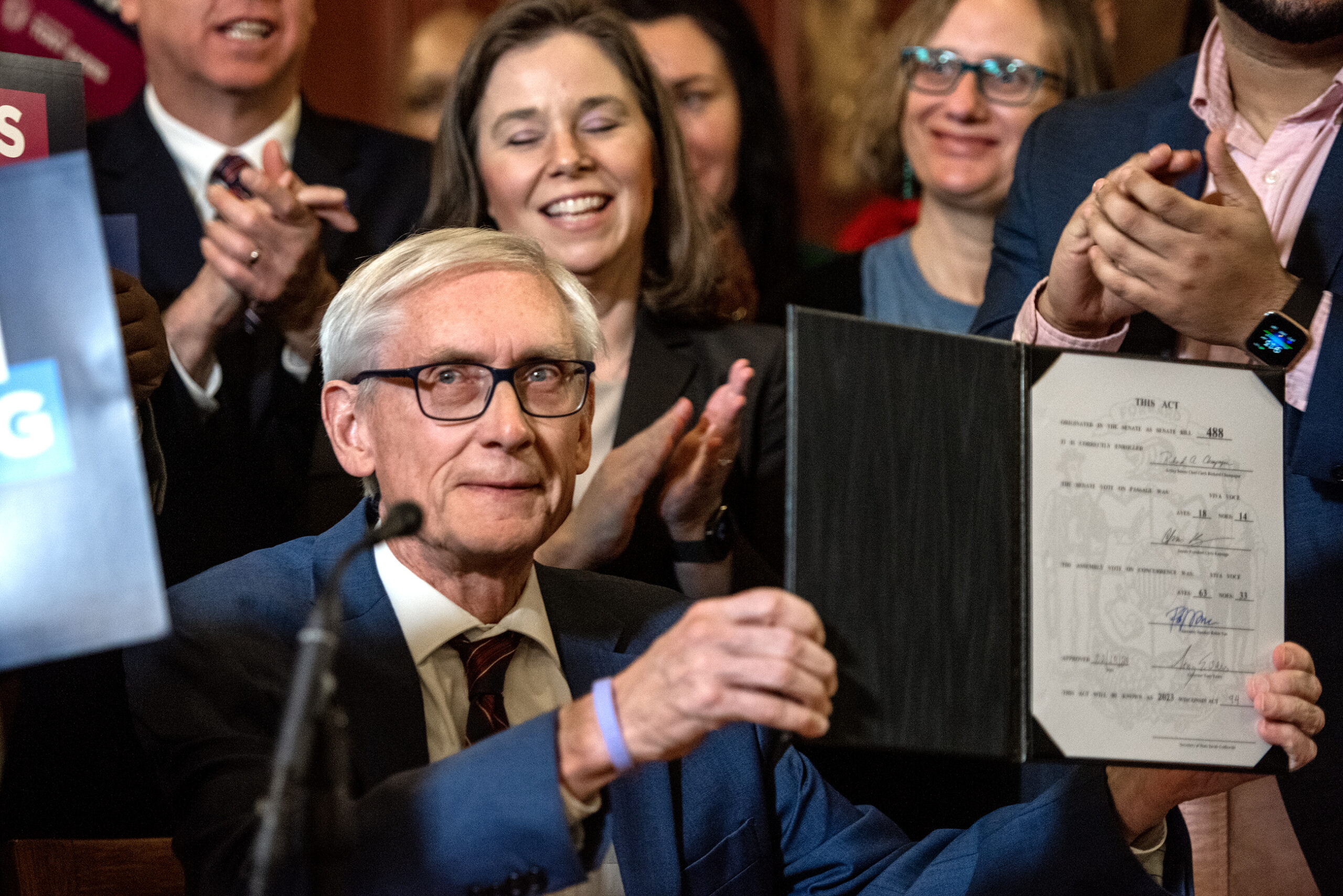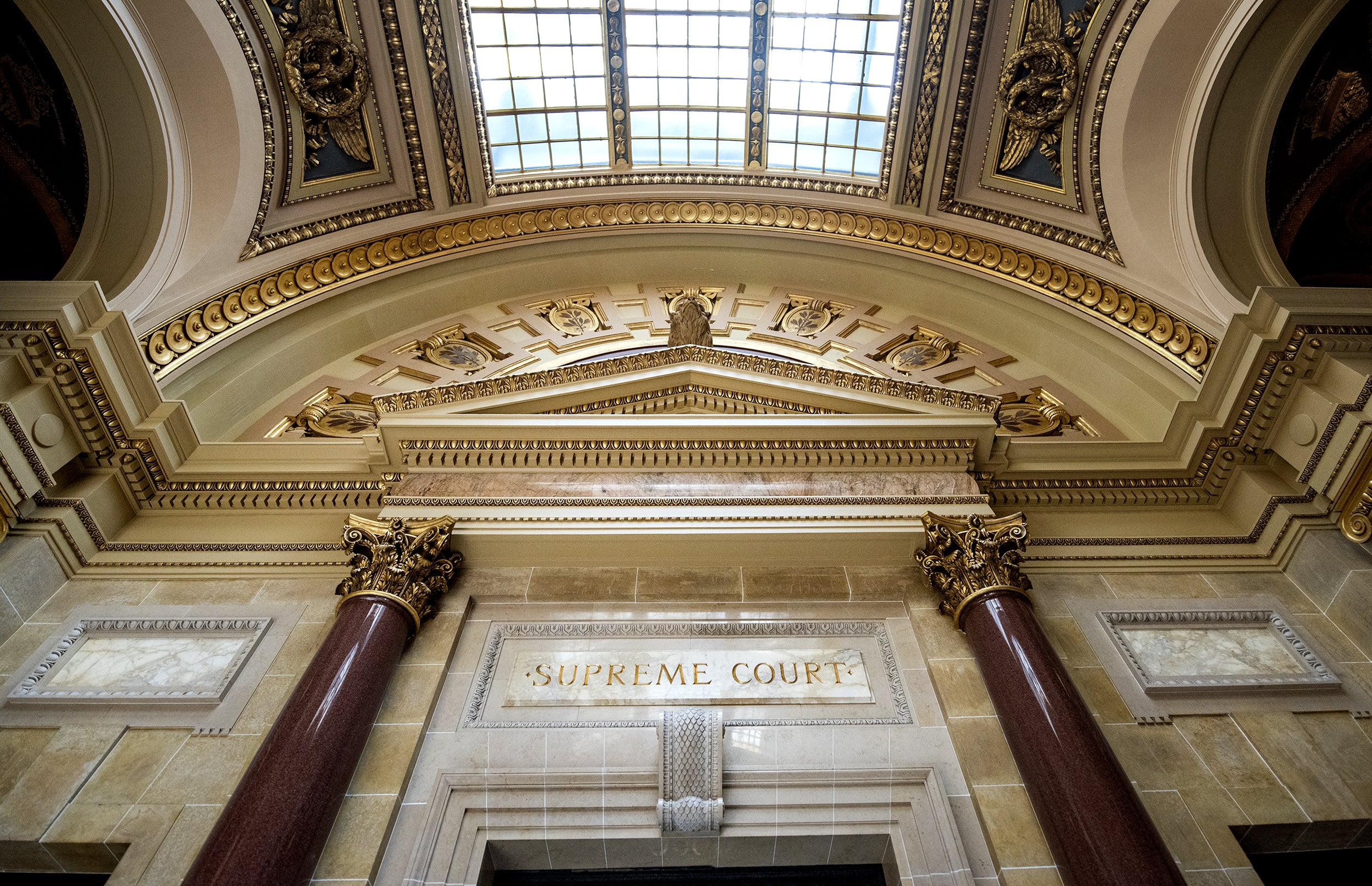Members of the Wisconsin Supreme Court voiced skepticism Wednesday about Gov. Tony Evers’ partial budget veto that extended school funding increases for 400 years, with some justices calling it “extreme” and “outrageous.”
Their comments came during oral arguments in a case challenging Evers’ partial state budget veto that deleted individual digits, words and a dash to authorize school districts to collect additional property taxes to fund a $325 per-pupil funding increase through 2425.
The budget bill, drafted by the Republican-controlled Legislature, intended for the increase to expire in 2025.
Attorney Scott Rosenow, representing the two Wisconsin taxpayers who filed the lawsuit, told justices Evers’ veto “approaches the absurd,” is “corrosive to democracy” and violates restrictions on how governors can wield their veto powers under the Wisconsin Constitution.
During questioning from the justices, liberal and conservative members of the court were skeptical about Evers’ partial veto, with some saying it appears to have gone too far.
Liberal Justice Rebecca Dallet said the initial reaction “from maybe anyone looking at this is, ‘Wow, that seems extreme.’”
News with a little more humanity
WPR’s “Wisconsin Today” newsletter keeps you connected to the state you love without feeling overwhelmed. No paywall. No agenda. No corporate filter.
Liberal Justice Janet Protasiewicz said the governor’s 400-year extension of the Legislature’s intended school funding increase “raises eyebrows.”
“And it seems to be outrageous, quite frankly,” Protasiewicz said.

Still, justices appeared less sure about how to address the lawsuit with a patchwork of prior Supreme Court decisions and constitutional amendments shaping the governor’s wide-ranging partial veto powers.
Representing Evers, attorney Colin Roth said he can understand the court’s skepticism about this particular veto, but said it was consistent with past precedent.
“What I’d like to spend my time this morning trying to do is convince you all that that is a natural result of this court’s case law from over 100 years that has expansively defined the constitutional partial veto power and allows the governor to veto appropriation bills in part,” Roth said.
Roth argued that in previous lawsuits over a governor’s deletion of budget text, the court has said the only test under the constitution is whether the end result is a “complete and workable law remains.”
Conservative Justice Rebecca Bradley responded by saying that test “appears nowhere in the constitution,” but is rather a test “that the court made up a long time ago.”
Roth conceded that point, but said the argument from the plaintiffs in the current lawsuit is not asking for the court to overrule prior case law. That is, however, what the court would have to do in order to overturn the veto, he argued.
Conservative Justice Brian Hagedorn pushed back “on the notion that we have a coherent body of law,” stating that the only test is whether a governor’s vetoes result in a workable law. He described the current state of Wisconsin governors’ partial veto powers as “kind of a mess,” and said lawmakers and voters who passed the original 1930 constitutional amendment creating it would be “shocked” by how it’s evolved over time.
“Because it is crazy,” Hagedorn said. “We allow governors to unilaterally create law that has not been proposed to them at all. It is a mess of this court’s making, and our body of cases is inconsistent.”

An amicus brief filed by a legal scholar in the case claims “Wisconsin’s partial veto power stands at a fork in the road” and describes Wisconsin’s Supreme Court as an outlier in condoning broad partial vetoes. The brief appeared to move liberal Justice Jill Karofsky.
“I think that there is concern that now we’ve got this 402-year veto,” Karofsky said. “It does feel like the sky is the limit, the stratosphere is the limit, right? And and perhaps today we are at that fork in the road.”
Roth responded that while justices have “substantive concerns about the scope of the veto power,” the court doesn’t need to change its precedent at all. He said a governor’s veto can be overridden by the Legislature, and lawmakers can initiate a constitutional amendment that could reign in veto powers.
Republican lawmakers did pass a proposed constitutional amendment this year that would bar governors from creating or increasing tax or fee increases using partial vetoes. The Legislature would need pass it again in the next session before it could go to voters for final approval.
Wisconsin Public Radio, © Copyright 2025, Board of Regents of the University of Wisconsin System and Wisconsin Educational Communications Board.







